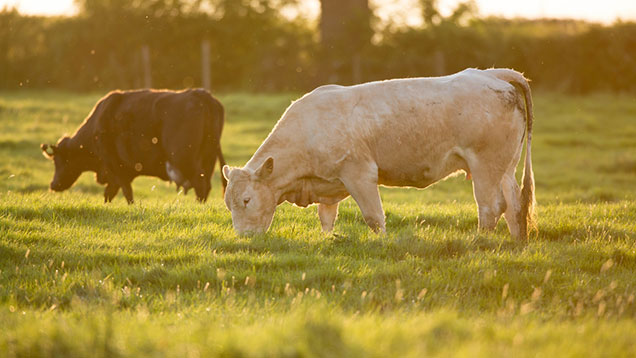Livestock farmers urged to tackle spring grassland weeds
 © Tim Scrivener
© Tim Scrivener Farmers are being urged to get on top of weeds this spring in order to maximise output from grassland.
Grassland weeds such as docks, thistles and ragwort can be an expensive burden on farmers, resulting in lost productivity and forage quality. But the weedkillers available to treat them also carry a cost – they can be expensive to buy and use and a single drop can threaten an entire reservoir of drinking water.
See also: How to guide to identifying and controlling all the common grass weeds
With changing legislation covering the use and management of pesticides, it is more important than ever to adopt integrated control practices, warns Voluntary Initiative manager Patrick Goldsworthy.
“Weeds can soon reduce grass yields and quality,” he says.
“Weeds will keep coming back if you don’t get to the root of the problem, whether it is poaching, overgrazing, wrong pH or bad drainage.”
Patrick Goldsworthy, Voluntary Initiative
“A 10% weed infestation equates to a 10% yield loss.” Weeds can also pose a threat to livestock health, and spread quickly – so timely targeted treatment is needed, he adds.
“A small clump one year can soon take over significant areas of pasture, dramatically reducing the grazing available.”
See also: Take the grassland weed academy course and earn CPD points
As a first step, producers should identify the weeds present, and get advice from a Basis-registered adviser on how to control them and improve the grassland.
“Weeds will keep coming back if you don’t get to the root of the problem, whether it is poaching, overgrazing, wrong pH or bad drainage,” says Mr Goldsworthy.
“Getting advice is really important. There are new products around that may do a better job and correct timing will improve performance of traditional weedkillers.”
From November 2015, sprayer operators must legally hold a recognised certificate of competence, and from November 2016 spray equipment must have a National Sprayer Testing Scheme certificate, warns Mr Goldsworthy.
“You need to make sure you’re using the right product, safely, and legally. It’s also vital to protect water courses, otherwise use of these products could be restricted.”
